The rapid spread of the Omicron variant, identified for the first time in South Africa and Botswana, once again raises the question of variant surveillance. Health specialists take stock of the situation of the Covid-19 epidemic in Africa.
Where is the epidemic situation in Africa? What do we know about the circulation of the virus today?
Dramane Kania: If we compare the situation on the African continent to that observed on other continents, the impact of the pandemic seems less important: the number of cases recorded there is lower, as is the number of deaths.
However, one should not jump to a hasty conclusion: these appearances are probably misleading, and in reality the circulation of the virus is certainly greater than these figures indicate. This discrepancy is explained by issues specific to the African continent: in many countries, diagnostic capacities are limited and data is lacking, even if projects such as APHRO-VOC and other initiatives have strengthened diagnostic capacity in several countries. In addition, a large part of the population is not necessarily used to referring to healthcare structures in the event of a health problem. For these reasons, the number of real cases of Covid-19 is therefore most certainly underestimated.
This hypothesis is corroborated by the fact that, in countries which have more resources and where the diagnosis can therefore be made more routinely (as in South Africa, or in the Maghreb countries), the number of reported cases is more important. In West Africa, on the contrary, the existence of an underestimation has been confirmed by seroprevalence studies, which detect the antibodies produced after infection with the virus. This work has shown that in some places more than half of the population has been exposed to SARS-CoV-2 in recent months.
Alpha Keita: As of January 2 in Africa, there were more than 9,5 million cases and close to 230 deaths. This is less than on other continents, but we can see that there are great disparities from one country to another: most of the deaths recorded are in countries with the most efficient health systems, and who are able to correctly collect data related to the epidemic. This supports the hypothesis of underreporting of cases.
As part of the Ariacov project, which supported the African response in the fight against the coronavirus, we carried out a serological study in Guinea on samples taken from the population of the capital, Conakry. This work, which consisted of three surveys carried out a few months apart, revealed that in December 2020, 17% of the population of Conakry had been in contact with the virus. By the end of February - beginning of March, this figure had risen to over 30% of the population. In June - July, it reached almost 50%.
These results clearly indicate that the number of cases is underestimated. The number of deaths is also so, because only those which occur in hospitals and centers affiliated with the CHU are counted. Ultimately, of course, the pandemic was not the expected slaughter, but it must be understood that the numbers of cases and deaths have been underestimated.
Richard Njouom: In Cameroon, the situation of the Covid-19 epidemic is identical to that of other countries in sub-Saharan Africa: the number of confirmed cases of SARS-CoV-2 infections is low, as is the number of deaths which are attributed to the virus, possibly due to an underestimation.
In order to better understand the impact of the Covid-19 pandemic and to follow the evolution of SARS-CoV-2 on the African continent, we launched in the spring of 2020 a collaborative research program called REPAIR, with all the African institutes that are members of the Pastor Network. This work covers various fields: development and performance evaluation of diagnostic tests (at the Pasteur Center in Cameroon, we have developed an easy-to-use colorimetric test, currently being evaluated in the field and in the other institutes of the Pasteur Network. ), molecular epidemiology studies of the virus, mathematical modeling of its diffusion, etc. SARS-CoV-2 seroprevalence surveys have also been conducted within several “sentinel” populations, such as health personnel and blood donors .
Can this circulation of SARS-CoV-2 favor the emergence of variants?
DK: What the theory tells us is that the more a virus circulates, the greater the risk of the emergence of variants. Indeed, when a virus multiplies in an infected cell, it copies its genetic material countless times. In doing so, he can make mistakes, mutations. Some of these mutations are deleterious, and the viruses that carry them die off; others are repaired; others still persist.
The whole question is whether these changes which occur in the genome (which is in a way the "construction plan of viral particles", editor's note) will result in changes in the structure of the virus, and if such is the case. If so, what will be the consequences: will they modify its transmissibility? Its virulence? Other characteristics?
To be able to detect this, it is necessary to have a good monitoring or surveillance system, based in particular on significant sequencing capacities. Unfortunately, in Africa, the majority of laboratories do not have the required technical capacity. In most cases, one cannot go beyond diagnostic tests, which only detect the presence of the virus or confirm its absence.
While it is sometimes possible to sequence the genome of viruses from samples that test positive, this can only be done occasionally, and sometimes only 3 or 4 months after sample collection. The capacity to do real-time variant monitoring is very insufficient; for this reason, our view of the evolution of the epidemic and of the number of variants actually circulating on the continent is certainly flawed.
Countries that are able to set up this type of surveillance are detecting more variants, which probably explains in part the fact that South Africa has identified at least two variants of concern in its territory since the start of the pandemic. This allowed the authorities to alert the international community very early on. Proof of the importance of sequencing, at the Muraz center in Bobo Dioulasso, partner of theANRS | Emerging infectious diseases, we were able to detect in mid-December two cases of infections by the Omicron variant, which means that it is also circulating in Burkina Faso.
Concretely, how is the monitoring of variants carried out?
AK: It is essentially based on the capacity of countries to sequence circulating viruses. At present, when looking at the contributions to the databases in which the researchers deposit the obtained sequences (such as the platform GISID for example), we see that Africa participates very little. Guinea, for example, has only deposited 311 genomes on GISAID since January 10, 2020.
(Over the same period, South Africa deposited nearly 25, France 000, the United Kingdom nearly 16 million and the United States 000 million. China deposited 1,5, editor's note)
To improve the situation, the project Afroscreen was launched, coordinated by ANRS | Emerging infectious diseases, in collaboration with the Institut Pasteur and the IRD. In Guinea, it has allowed us for two months to practice routine sample screening. This approach consists of looking, in samples tested positive, for the mutation profiles corresponding to the known variants, listed by the World Health Organization (WHO).
This screening is carried out on samples taken either from patients hospitalized in one of the capital's three major health centers, or from people who come spontaneously to be tested, or from travelers. Results can be obtained within hours, allowing for real-time monitoring.
But screening has its limits, since it is focused on already known variants (variants of interest or variants of concern), the mutations of which have already been identified. The mutation profiles of the unclassified variants are all listed as “wild”, which does not provide additional information and does not allow exhaustive monitoring of the variants which emerge.
Only whole genome sequencing can allow a detailed analysis of the mutations that may occur in the new variants, and determine whether they may be of concern or not, whether there is any concern that they will make the virus more transmissible, or allow it to escape immunity - whether natural or conferred by vaccines, etc.
It is therefore necessary to strengthen these capacities in as many countries as possible (in particular to be able to compare data from one country to another), which is also the subject of the Afroscreen network.
RN: Sequencing is indeed essential to study the diffusion of SARS-CoV-2 in time and space and to track the emergence of dangerous variants. In Cameroon, thanks to the support of the Institut Pasteur, we have been able to strengthen our capacities, both in terms of material and staff training. As of January 2021, we were thus able to set up genomic monitoring which resulted in the sequencing of 116 complete genomes. The results obtained confirmed the circulation of the Alpha, Beta, Delta and Gamma variants in the country. We hope that the Afroscreen network will increase this effort tenfold.
The other advantage of being part of a network of this size, which brings together 13 African countries, is the sharing of knowledge and data. By publishing the results obtained in the open GISAID database, it will be possible to monitor and better understand the traffic in the region.
Regarding vaccination, where are we on the continent?
DK: Many countries initially encountered difficulties in obtaining the vaccine. To overcome the problem, various initiatives have emerged. Beyond this question of accessibility, which is certainly essential, a second problem arises: that of the support of the populations, who generally lack scientific information to answer their questions. Fake news, on the other hand, is widely relayed on social networks, and feeds people's mistrust of vaccination. At the moment, it seems that only citizens who are obligated to travel resolve to be vaccinated… Reversing this trend is another challenge.
RN: In Cameroon, the vaccination situation is very late: only 1.1% of the target population has a complete vaccination schedule. People are suspicious of the vaccines available in the country. One of the challenges is therefore to convince people of the validity of vaccines. This vaccine delay observed in Africa calls for even more strengthening of the surveillance of variants by sequencing. If we can determine which variants are circulating in which territories, it would be easier for health authorities to decide to set up targeted vaccination campaigns, which are more effective in containing the epidemic.
Alpha Kabinet Keita, Microbiologist, assistant professor at the University of Conakry, researcher at the University of Montpellier, Inserm U1175, Research Institute for Development (IRD); Dramane Kania, Pharmacist-Virologist, MURAZ Center (Bobo-Dioulasso, Burkina Faso) - National Institute of Public Health, and Richard Njouom, Head of the virology department of the Center Pasteur in Cameroon, Cameroon Pasteur Center
This article is republished from The Conversation under Creative Commons license. Read theoriginal article.















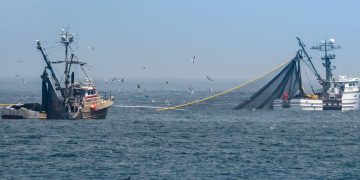

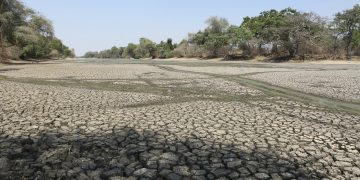

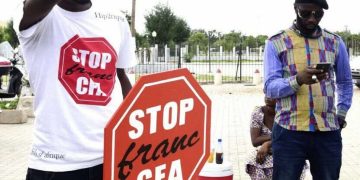
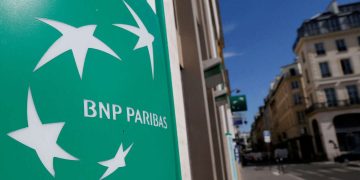
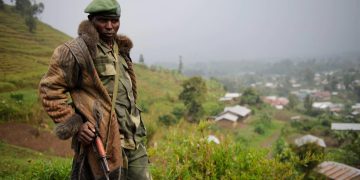




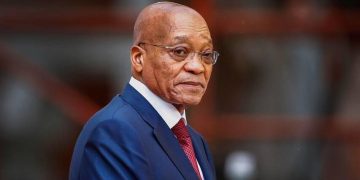
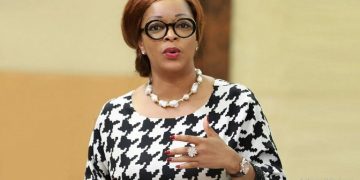
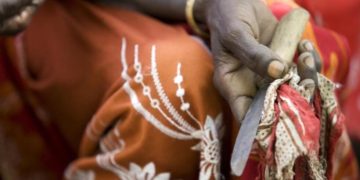

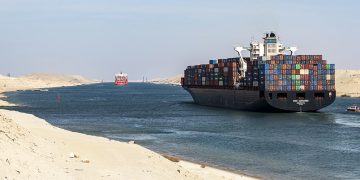
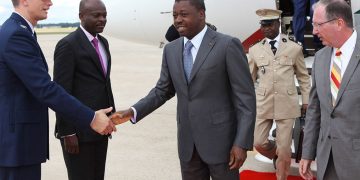



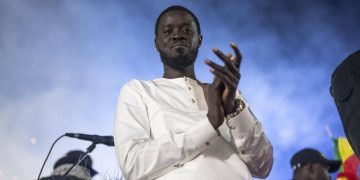
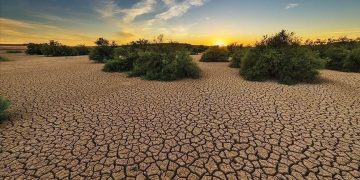


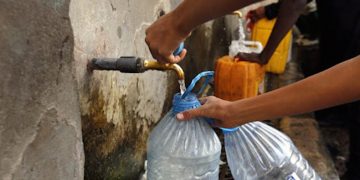
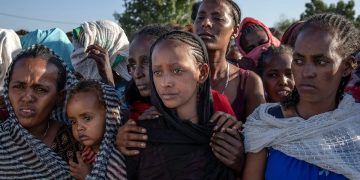

![[Editorial] 30 years later, is apartheid really over?](https://lejournaldelafrique.com/wp-content/uploads/2021/06/caricature-jda-apartheid-360x180.jpg)
![[Edito] Gabon and Commonwealth: the whims of Prince Ali](https://lejournaldelafrique.com/wp-content/uploads/2021/06/caricature-JDA-Bongo-360x180.jpg)
![[Editorial] Facebook and Twitter, more dictators than dictators?](https://lejournaldelafrique.com/wp-content/uploads/2021/06/Caricature-JDA-FB-TW-360x180.jpg)
![[Edito] Rwanda: for the French apologies, we will have to go back](https://lejournaldelafrique.com/wp-content/uploads/2021/05/Caricature-rwanda-JDA-360x180.jpg)
![[Edito] Guinea: Alpha Condé, the oppressed turned oppressor](https://lejournaldelafrique.com/wp-content/uploads/2021/05/Caricature-Alpha-Conde-360x180.jpg)
![[Edito] CFA Franc: a facelift cut to measure for France](https://lejournaldelafrique.com/wp-content/uploads/2021/05/Caricature-JDA-CFA-360x180.jpg)
![[Edito] Riyad Mahrez: One, two, three, viva l'Algérie!](https://lejournaldelafrique.com/wp-content/uploads/2021/05/caricature-Mahrez-360x180.jpg)
![[Edito] Niger: Mohamed Bazoum begins a delicate balancing act](https://lejournaldelafrique.com/wp-content/uploads/2021/04/image_6483441-1-360x180.jpg)
